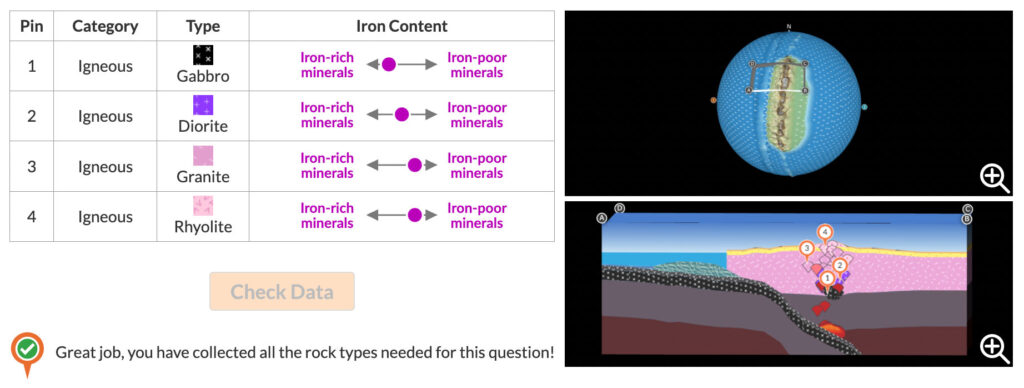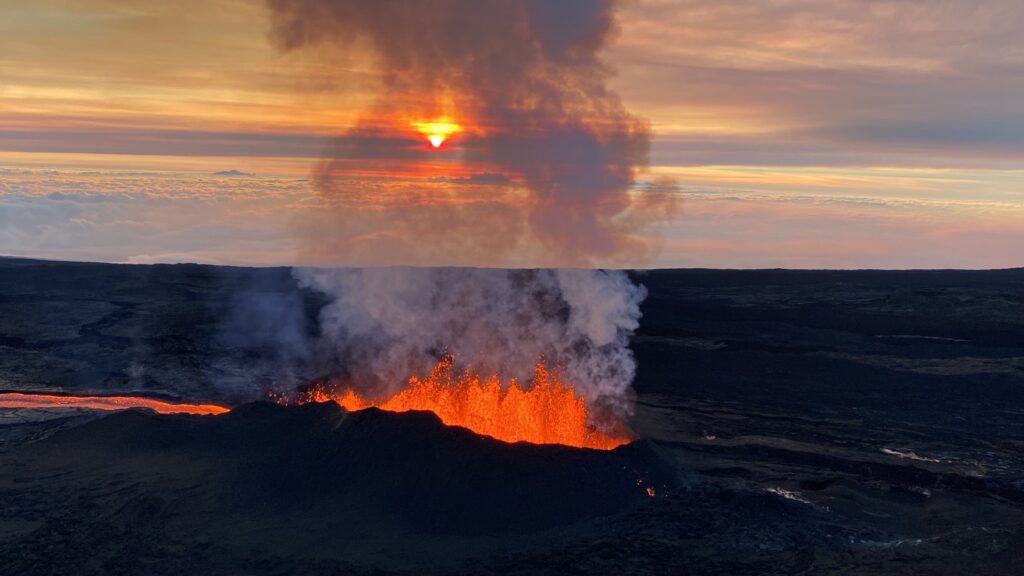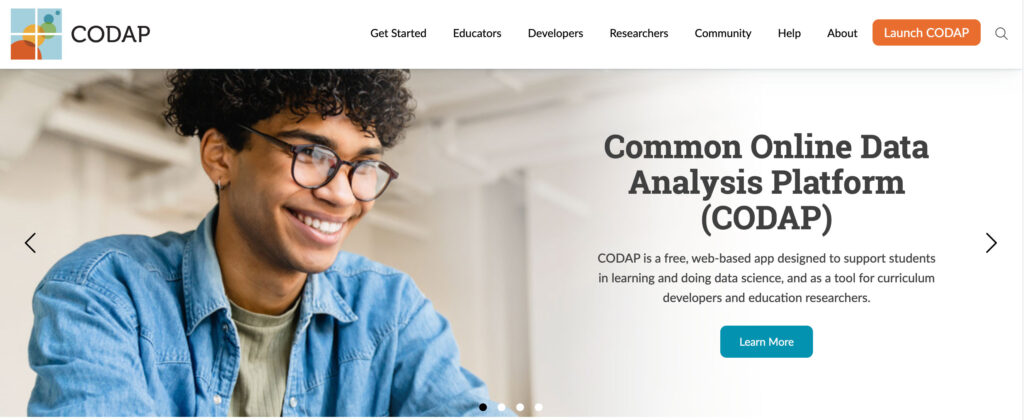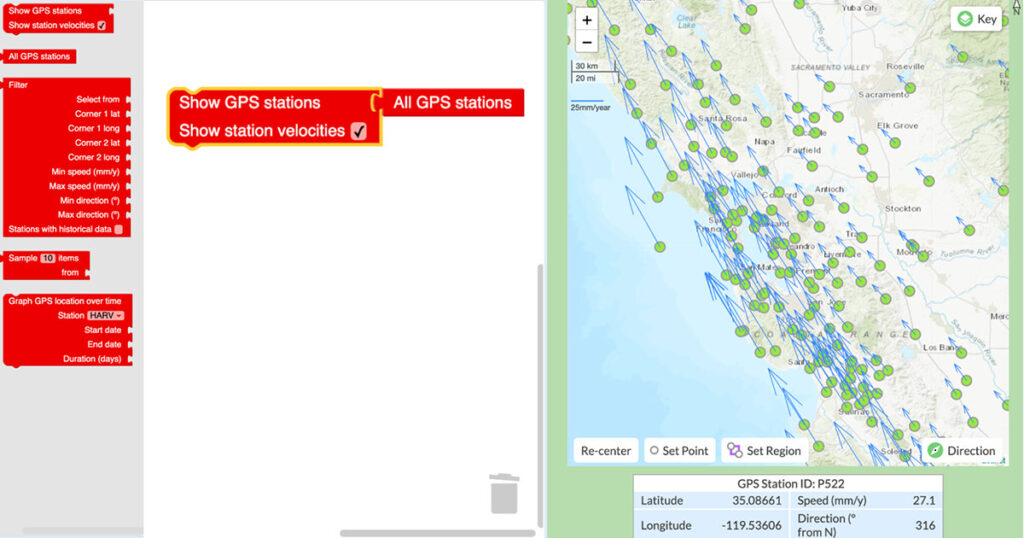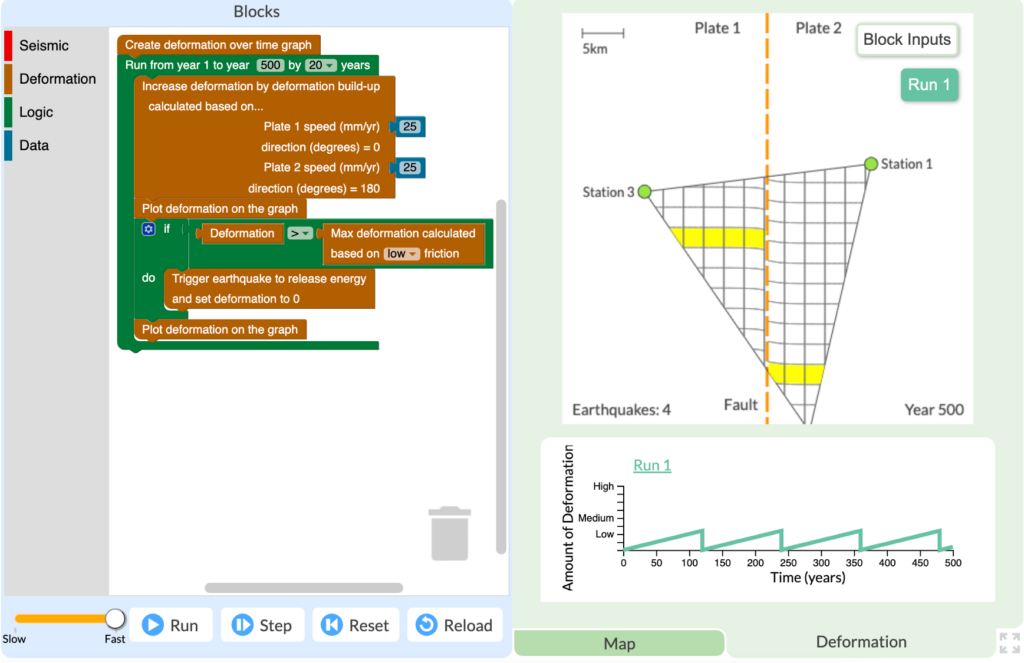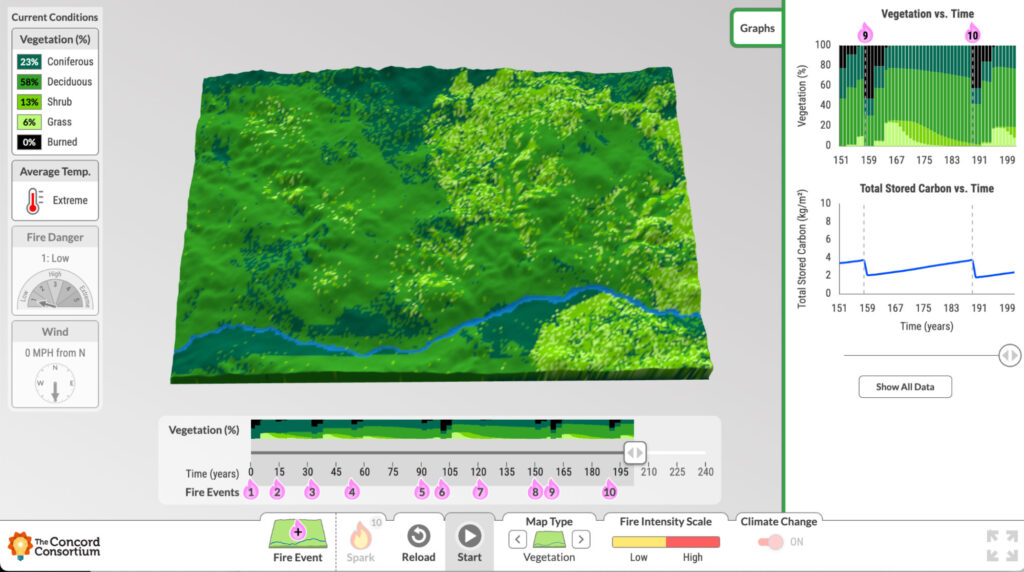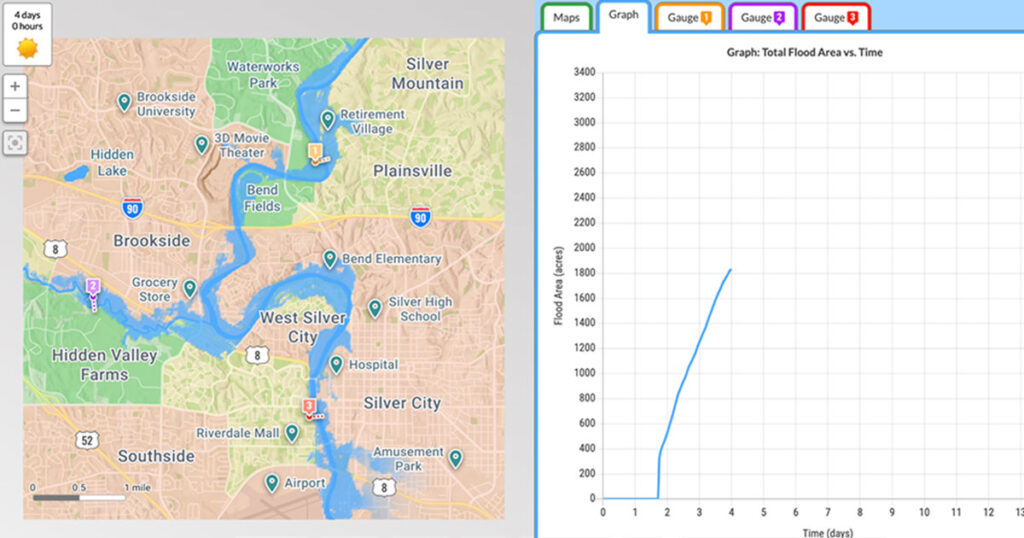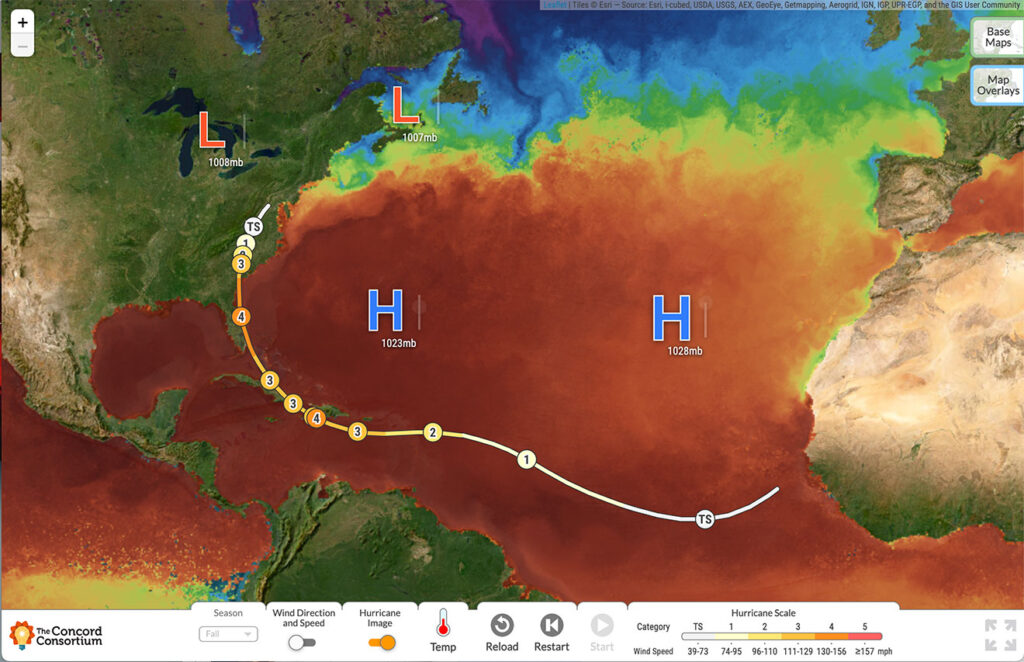We’re thrilled to announce an updated release of the Rocks & Tectonics module! This module revolutionizes the teaching of the traditional rock cycle by connecting rock formation to plate motion and the tectonic conditions under which rocks form. The new version of the Rocks & Tectonics module incorporates new interactive feedback mechanisms designed to support […]
Hawaiʻi’s iconic volcanoes have shaped its islands, culture, and communities for centuries. From the breathtaking eruptions of Mauna Loa to the challenges of living with air pollution caused by the eruptions (known as “vog”), volcanic activity is an intrinsic part of life in Hawaiʻi. What if students could harness computational tools to better understand volcanic […]
A number of innovative projects at the Concord Consortium are helping students develop AI literacy, converse and collaborate with AI, and use AI as a learning and communications tool. We’re helping students develop AI literacy and interest in AI-related careers. We’re partnering with the University of Florida, Texas Tech University, WestEd, and Florida Virtual School […]
In 2024, we published nine journal articles and four book chapters. Through these publications and our @Concord newsletter, our goal is to share relevant knowledge between the education researcher and practitioner communities. Read all Concord Consortium articles and book chapters. Using Multiple, Dynamically Linked Representations to Develop Representational Competency and Conceptual Understanding of the Earthquake […]
Jacob Sagrans is Senior Research Associate at Tumblehome, Inc., and a consultant on data science projects. We are excited to announce that CODAP now has a new website! Special thanks go to Doubleberry for designing this beautiful site. We encourage you to explore the many enhanced resources the CODAP website now offers. As part of […]
Shelley Olds is an Instructional Designer at the EarthScope Consortium. Many middle and high school students learn about earthquakes by studying California since it is the most seismically active state in the contiguous United States. Students learn that there is an earthquake cycle and that the cycle that ends with an earthquake. But what happens […]
Symbols, objects, maps, graphs, and simulations are all powerful tools for conveying information. However, some complex ideas just can’t be captured in a single representation. In these cases, multiple visualizations can be used together to convey and connect several pieces of related information. For example, during the COVID-19 pandemic, news organizations used a combination of […]
Massive amounts of Earth’s stored carbon is located in boreal forests, including those in northern Canada and Alaska. As temperatures rise and wildfires become more frequent, scientists are studying the boreal forest’s transformation from carbon sink to carbon source. We partnered with Dr. Brian Buma at the University of Colorado Denver and the Environmental Defense […]
Stephanie Harmon is a Science Consultant with the Partnership Institute for Math and Science Education Reform (PIMSER) in Kentucky. Previously, she taught Earth science and physics at Rockcastle County High School in Mount Vernon, Kentucky, and has consulted on several Concord Consortium projects. For my students in rural Kentucky, floods are personal. In July 2022, […]
Michael Focht is a middle school teacher in Titusville, Florida, and field tested our GeoHazard modules. Do the names Matthew, Nicole, Ian, or Irma give you pause? Are they long-lost cousins? Friends from high school? For the students in my middle school science classes, these are the names of hurricanes that have impacted them over […]
